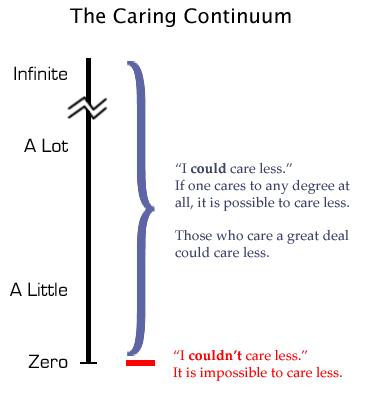





Bracketology
I’ve written about March Madness before, and with good reason: It’s fantastic. Each year I makes sure to get back to Cbus, find a good bar with a ton of huge TVs and without a ton of jackasses (good drink specials doesn’t hurt either). I meet up with my college friends (we’re still surprisingly close), sit down at a bar, and just watch the chaos unfold all day long (don’t worry, we tip well).
Now, obviously I love watching the upsets and the excitement, but filling out the bracket is an essential part of the experience.
Currently, this is how our group currently runs our March Madness tournament: Points are awarded each round by the tournament seed of the winner times the round multiplier. The first round multiplier is x1, 2nd is x2, 3rd is x3, etc. We started this back in the days when we were all pretty poor (now we’re still poor, but we have jobs), and so the winner gets to select a season of a television series that each of the losers has to move to the top of their Netflix queue and watch it.
Obviously, the Netflix thing could get ugly (Season 5 of Full House, Season 6 of Dexter, Season 2,3,4, or 5 of Heroes…), but so far no one has abused it. In fact, it’s been a pretty great way to discover new TV shows.
But the method is more important than the prize. When it comes to filling out your bracket, forget the traditional approach where you just count up the number of games you got right–that’s a horrible way to do things. You get no reward for making bold choices, whereas some jackass who decides to go with all four #1 seeds making the Final Four cleans up.
The best way to do it is to multiply the round by the seed and add the total together. So if you have Duke winning it all this year, you would get a total of 15 points for that selection (#1 seed x # round and add them all together). However, if you correctly pick the #13 seed advancing to the second round, you get 26 points. In other words, you’re rewarded for bold picks and successfully predicting chaos, which this is really all about.
This year, we’re trying something a little different. We’ll keep the same format for one bracket, but this time around we’ll be using a second bracket as well.
Now, I completely agree that using more than one bracket is lame. I don’t care if you’re in four different pools–step up and submit the same exact bracket for each one. Believe in yourself!
For our second bracket, we’ll be using chance. Each of us will flip a coin for every game on our bracket. Everyone is allowed to have five vetoes, so if you get a horrible matchup (a 16-seed defeating a 1-seed). The vetoes could be tricky. After all, if you have a 3-seed getting knocked off by a 14-seed in the coin toss, do you really veto it? A 3-seed isn’t worth a ton, but a 14-seed could get a ton of points (especially if they go on a run).
This should definitely determine just who is the luckiest guy in our group. Netflix will be for bragging rights–the coin bracket will be for fun. I can’t wait.

Madness Musings
The Bubble
You know, I hate to sound all Charlie Conservative with my bootstappy comments, but honestly, in a field of 68 teams, if you can’t make it into the NCAA tournament, you really didn’t deserve it. Period. Before the ridiculous expansion of teams from 64 to 68, only one of these bubble teams would have been considered. And, sorry Virginia Tech–that team is Colorado. After three wins over Kansas State (a #5-seed), a win over Texas, and playing Kansas tight, the Buffaloes deserve a spot. I’ll also give a nod to St. Mary’s (with an RPI of 46).
The team that definitely does not deserve a shot? The Hokies. Everyone on ESPN is losing their shit over Virginia Tech being left out of the discussion. Why? Because they beat Duke a couple of weeks ago. And that’s about it. People love talking about that game, while conveniently overlooking two (!) losses to Virginia, a blow-out loss to Georgia Tech. They won an ACC tournament game against Florida State. By one point. After the game-winning buzzer-beater by the Seminoles was overturned (the ball was barely on his fingertips–another tenth of a second and the Hokies are going home. Now, that’s fine–hell, Evan Turner hit a buzzer-beater against Michigan in the Big 10 tournament last year, and went on to convincingly win the Big 10 tourney. Virginia Tech? Not so much. They got to play Duke…who beat them by 14 points.
Honestly, it wouldn’t even bother me that much if it wasn’t for their coach, Terry Greenberg. When asked about this year’s (alleged) snub, he said that committee must have an “agenda” against VaTech. And this wasn’t an errant slip of the tongue. He said the word four times, including three times in the opening few sentences. Check it out:
“[I’m] just disappointed. You almost wonder if someone in that room has their own agenda and that agenda doesn’t include Virginia Tech. Just plain and simple. I totally wonder it, if someone in that room has an agenda. The explanation was so inconsistent with the result that it was almost mind-boggling.”
Here’s a scientific law that I just made up, but I’m sure it holds true:
The greater the discrepancy between the level of conspiracy and your overall importance, the crazier you sound.
So, if the President of the United States says that he is being followed and it threatens the security of the nation, then he doesn’t sound too crazy. However, if the President says he’s being followed by a little girl who’s trying to steal seven dollars from him, then he sounds like a crazy person.
Let’s go to the other end of things. If you’re the head coach of the Hokies with a questionable record and you’re complaining that there is an organized conspiracy to prevent you from being the bottom seed in the NCAA tournament, you sound like a crazy person. There’s absolutely no reason for this happening. It’s not like it’s the USC or Ohio State basketball teams arguing blowback from the NCAA sanctions violations from their football teams. It’s just the random mutterings of a sore loser. Want in? Win more than one fluke (albeit thrilling) game.
The Bracket
Everyone thinks that the way they do things is the best (call it another scientific law). But honestly, this is the best way.
When it comes to filling out your bracket, forget the traditional approach where you just count up the number of games you got right–that’s a horrible way to do things. You get no reward for making bold choices, whereas some jackass who decides to go with all four #1 seeds making the Final Four cleans up.
The best way to do it is to multiply the round by the seed and add the total together. So if you have Duke winning it all this year, you would get a total of 15 points for that selection (#1 seed x # round and add them all together). However, if you correctly pick the #13 seed advancing to the second round, you get 26 points. In other words, you’re rewarded for bold picks and successfully predicting chaos, which this is really all about.
The Tournament
I harped on this last year, and I’ll continue to do so. I understand that practically every sport determines its champion through a playoff system, and I absolutely love tournaments (practically nothing can compare with March Madness). However, let’s not pretend that the NCAA tournament–or any tournament for that matter–is flawless.
I’ll use Michigan State last year as an example. Normally, in order to make it to the Final Four, you’d have to beat some pretty great teams. In 2010, check out Michigan State’s bracket. Here are the teams (and seeds) that Michigan State (who was a 5-seed) had to beat: New Mexico State (#12), Maryland (#4), Northern Iowa (#9), and Tennessee (#6). Should Michigan State have made it that far? Doubtful. But the Northern Iowa players had the game of their lives against the #1 seed Kansas and #3 Georgetown got the shit kicked out of it by #14-seed Ohio (the Bobcats, not the Buckeyes).
Now, am I saying that the Spartans didn’t deserve their success? Of course not. Hell, they only lost to Butler (a #5 seed who was WAY better than its ranking and had a heck of a tougher road than Michigan State) by a basket, and Butler only lost to Duke by a basket in the final game.
What I am saying is that the tournament doesn’t necessarily give the best team the championship. It helps us feel better about who wins that championship, but it doesn’t necessarily tell us the best team that year. And in doing so, it negates the regular season. I hate to sound like a BCS apologist, but it truly does. My Ohio State Buckeyes lost to Wisconsin in both football and basketball this year, and the devastation I felt in October couldn’t come close to matching the modest disappointment I felt when the Badger fans rushed the basketball court last month.
The Regular Season
March Madness is second only to college football season in my book. Lebron James is the only reason to watch the NBA, I never got into the NFL, and baseball…well, it’s baseball. I always make sure to watch the entire tournament, especially those first four days. This year, I’ll be in Columbus, sitting at a bar with my friends for hours on end, drinking and watching great game after great game.
But we’re not there yet. It’s still the last week of regular-season play. Then it’s the pointless conference tournaments (seriously, why?) and finally March Madness officially arrives.
Well, I hate to keep dwelling on this, but the anti-BCS crowd drones non-stop for the entire college football season (and smugly gloats during the NFL playoffs). It’s only fair that I keep defending my side. The college basketball regular season is a painful reminder of what could easily happen to college football if the pro-playoff pundits have their way.
If the BCS ends and we go with an 8 or 16 team playoff in college football, the college football season will spiral into mediocrity. Period.
The college football season, start to finish, is arguably the most entertaining season in sports. College basketball…not so much. March Madness is incredible event, but it lasts only a month (and, by the time the Elite Eight rolls around, there are rarely any real upsets left). Because of the 64-team playoff, the regular season has virtually no meaning.
Two weeks ago, there was a prime-time matchup: Villanova v. Syracuse. It was supposed to be a hell of a game–two top teams from their conference, ranked number 8 and number 4, respectively at the time. And I literally couldn’t care less. See Fig. 1.
Fig. 1
Why? Because it doesn’t matter. Not even a little bit. For the best example, check out Duke.
Duke has always been a team I respect (growing up I thought Bobby Hurley was incredible), but this year they represent what is wrong with the college basketball system.
Duke was ranked #4 a week ago when they played Maryland (#22). In a thrilling game (at least that’s what they said on SportsCenter), Maryland squeaked out a win. Now, in college football, Duke plummets and can only dream about what would have happened if they had beaten the Terrapins. In college basketball…not so much.
The next morning after the loss. Twelve hours after the loss. ESPN analysts asked one another if Duke would be a #1 seed in the tournament. And they all agreed that Duke was a guaranteed lock for a #1 seed. Someone even posed the hypothetical scenario that Duke loses early in the conference tournament and Ohio State wins its conference tournament. The analysts all agreed it was irrelevant – Duke was in.
Think about that. A loss in the final week of conference play and a loss doesn’t even drop them out of a #1 seed. When people say the college basketball regular season is meaningless, they really meant it.
Let’s hope the fans don’t trade months of incredible drama for a couple of upsets in a four-week tournament.
